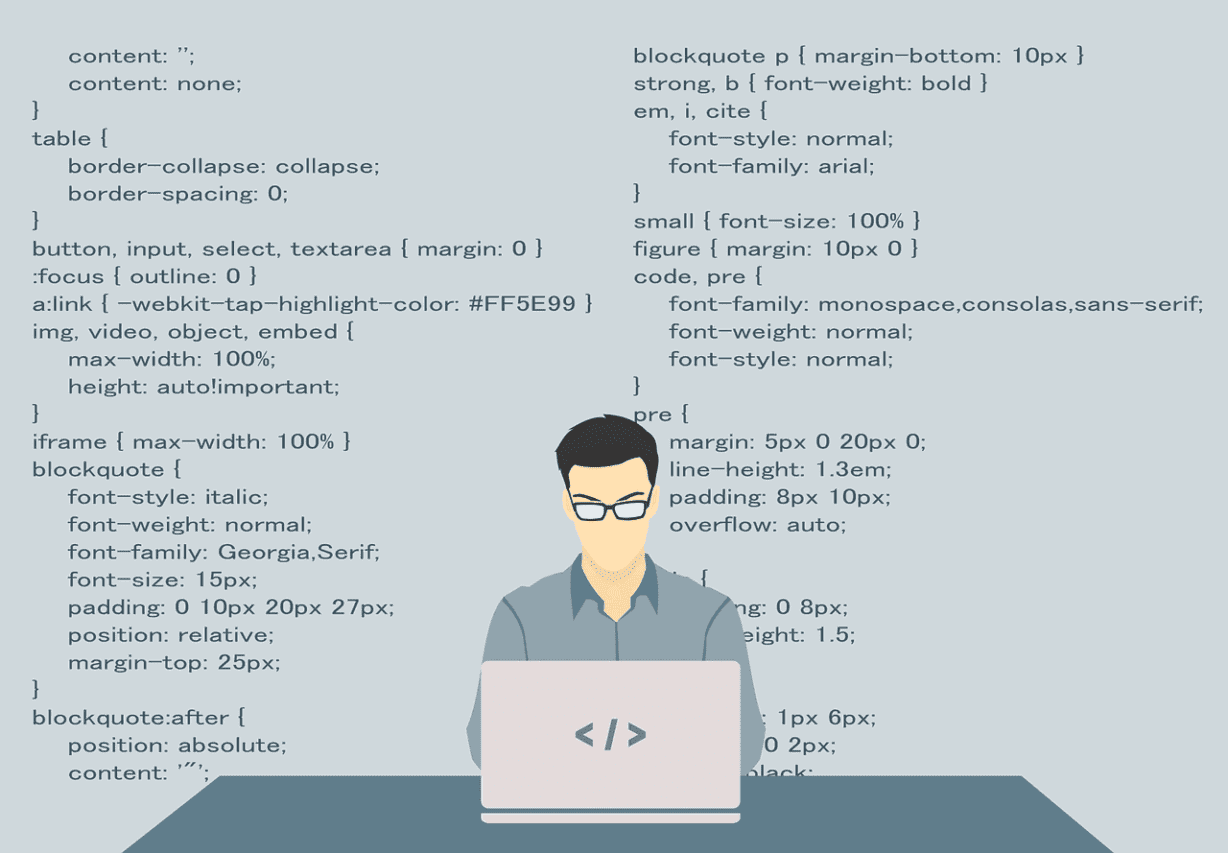Discover the 10 best online coding programs catering to various skill levels and learning styles. This comprehensive guide includes detailed insights, unique features, pricing options, and a comparison to help you select the perfect platform for your coding journey. Whether you’re a beginner or looking to enhance your skills, find the best fit for your learning goals!
Explore the 10 best online coding programs
Here’s an expanded version of the best online coding programs, providing more details on each program’s offerings, additional insights on their unique features, and tips on how to maximize your learning experience. Categorized by skill level, learning style, and career goals, with key features, pricing, and a comparison to help you choose the right platform:
1. Codecademy
Key Features: Codecademy offers a variety of interactive coding lessons across multiple programming languages such as Python, JavaScript, Ruby, and SQL. The platform is designed with a hands-on approach, allowing users to write code directly in an integrated development environment (IDE). Codecademy provides guided coding exercises and in-depth project-based learning, making it easy for learners to apply their skills immediately.
Best For: Beginners and hobbyists who are just beginning their coding journey and want a structured approach.
Why Stands Out: Codecademy gamifies learning, providing instant feedback on coding exercises and integrating a points system that rewards progress. They also offer career paths tailored to specific roles in tech, such as web developer and data scientist.
Cost: The platform has a free basic plan, but for access to advanced projects and real-world applications, the Pro plan ranges from $20–40/month.
2. freeCodeCamp
Key Features: freeCodeCamp provides over 3,000 free tutorials along with practical projects. The curriculum covers essential web development skills including HTML, CSS, JavaScript, and backend technologies such as Node.js. Users can earn nonprofit certifications by completing projects that replicate real-world requirements.
Best For: Self-learners who are looking for a comprehensive, free coding experience that focuses on practical application.
Why Stands Out: The community aspect is one of freeCodeCamp’s major strengths, providing support through forums and coding groups. Additionally, freeCodeCamp helps users create portfolios that can be shared with potential employers, enhancing job-seeking efforts.
Cost: Completely free, making it accessible to anyone eager to learn coding without financial commitment.
3. Udacity (Nanodegrees)
Key Features: Udacity offers unique “Nanodegree” programs designed by industry experts in fields like artificial intelligence, data science, and web development. Each course is structured with real-world projects reviewed by experienced mentors. Additionally, the platform comes with career services including resume reviews and interview preparation.
Best For: Individuals looking to pivot careers and want to gain job-ready skills in rapidly growing technology sectors.
Why Stands Out: The partnerships with well-known tech companies, such as Google and AWS, ensure that the curricula are aligned with the current job market demands. Udacity also offers job guarantees for select Nanodegree programs, providing peace of mind for learners.
Cost: Monthly subscription costs range from $249 to $399, depending on the selected program.
4. Coursera
Key Features: Offers a vast array of courses from top universities and institutions worldwide, including practical specializations in programming and data science. Coursera allows users to earn verified certificates and degrees from accredited universities, enhancing their professional credentials.
Best For: Learners who desire formal education with recognized certifications and want to learn from the world’s leading academic institutions.
Why Stands Out: Courses are taught by renowned professors and experts, ensuring high-quality content. Additionally, the platform offers financial aid for eligible learners, making higher education more accessible.
Cost: While most courses can be audited for free, obtaining certificates or specializations typically costs between $39 and $99/month.
5. edX
Key Features: Similar to Coursera, edX offers courses created by prestigious institutions like Harvard and MIT. Users can earn micro master’s programs that stack toward a full master’s degree. The courses cover a variety of coding languages and specialized tech skills, often with a strong academic emphasis.
Best For: Students interested in deepening their understanding of CS with access to university-level coursework without incurring full-time tuition costs.
Why Stands Out: Its unique stackable credential system offers flexibility and acknowledgment of learning progress, allowing learners to build towards degrees at their own pace.
Cost: Auditing courses is free, while a verified certificate usually costs between $50 and $300.
6. Pluralsight
Key Features: Pluralsight is known for its focus on technology and IT skills, providing video courses on a wide range of topics from web development to cybersecurity. The platform includes assessments that help gauge skill levels and tailor learning paths to individual needs.
Best For: Intermediate and advanced students looking to specialize or enhance their skills in specific technologies such as cloud computing or software development.
Why Stands Out: Their Skill IQ feature is particularly useful, allowing users to see their progress and areas needing improvement. This personalized approach makes it easier to effectively plan study time.
Cost: Subscription prices range from $29 to $45/month.
7. LeetCode
Key Features: Primarily focused on coding interview preparation, LeetCode offers a variety of coding questions categorized by company and difficulty level. It features challenges that mimic those posed during real technical interviews, along with contests and discussions to engage users.
Best For: Developers preparing for technical interviews, particularly for roles at major tech companies like Google and Facebook.
Why Stands Out: The platform regularly updates its question bank to reflect current hiring practices and trends in coding interviews. It also offers a community-driven approach, where users can discuss solutions and strategies.
Cost: Offers a free basic plan, with premium access available for around $35–$159/year.
8. Khan Academy
Key Features: Khan Academy provides an essential introductory platform for those new to programming. Its bite-sized lessons are perfect for younger audiences or complete beginners. Topics covered include HTML/CSS, algorithms, and principles of programming.
Best For: Young learners (children and teens) who require an engaging and educational environment to learn the fundamentals of coding.
Why Stands Out: The platform’s commitment to maintaining accessibility ensures that all materials are completely free and safe for younger learners.
Cost: Free of charge.
9. Scrimba
Key Features: Scrimba stands out with its interactive coding screencasts, which allow learners to pause and edit code directly within the screencast. It offers courses on popular frameworks like React and is designed with active learning in mind.
Best For: Visual learners who benefit from engaging, interactive content when learning coding concepts.
Why Stands Out: Its unique “scrim” format gives users a real-time coding experience, promoting a deeper understanding of the material.
Cost: Free basic plan; Pro subscription available for $20/month.
10. The Odin Project
Key Features: An entirely free, project-based curriculum that covers full-stack web development skills, including Ruby on Rails and JavaScript. The Odin Project emphasizes collaboration and community learning, providing resources and a supportive learning environment.
Best For: Aspiring web developers who want a thorough and job-ready coding education without any costs.
Why Stands Out: It integrates practical tasks with theoretical learning, ensuring that users not only understand concepts but can also apply them in real-world situations.
Cost: Completely free.
Side-by-Side Comparison of Top Online Coding Programs
| Program | Pricing | Skill Level | Format | Certifications | Standout Feature |
|---|---|---|---|---|---|
| Codecademy | Freemium | Beginner | Interactive lessons | Pro certificates | Gamified learning experience |
| freeCodeCamp | Free | Beginner–Intermediate | Project-based | Free certifications | Strong community support |
| Udacity | $$$ | Intermediate–Advanced | Mentored projects | Nanodegrees | Job guarantees for select programs |
| Coursera | Freemium | All levels | Video lectures | Accredited certificates | Courses from top universities |
| edX | Freemium | All levels | Academic courses | Micro-master’s | Stackable credentials from renowned institutions |
| Pluralsight | $$ | Intermediate–Advanced | Skill assessments | Role-based certifications | Personalized Skill IQ tests |
| LeetCode | Freemium | Intermediate–Advanced | Coding challenges | None | Real interview-style problems |
| Khan Academy | Free | Beginner | Bite-sized lessons | None | Kid-approved educational content |
| Scrimba | Freemium | Beginner–Intermediate | Interactive screencasts | Pro certificates | Real-time coding experience |
| The Odin Project | Free | Beginner–Advanced | Project-based | None | Open-source curriculum focused on job readiness |
Best Overall: freeCodeCamp
Why It’s #1:
freeCodeCamp is considered the best overall online coding program due to its completely free, project-driven curriculum that closely mimics real-world coding tasks. The comprehensive nature of the curriculum means that it includes everything from the fundamentals of web development to more complex topics like APIs and database management. The supportive, nonprofit community, along with job placement support services, provides the necessary tools for self-starters to transition into tech roles.
Users can also showcase their coding portfolio to potential employers, making the landing of entry-level positions more attainable. For those seeking structured mentorship or advanced courses, Udacity or Codecademy Pro might be valuable alternatives, but freeCodeCamp’s accessibility and zero-cost certifications make it the standout option.
Key Considerations
- Goals:
- Job seekers: Consider programs that help generate portfolios and provide job support (like Udacity and The Odin Project).
- Hobbyists: Start with beginner-friendly platforms like Codecademy or Khan Academy to explore your interests.
- Preparation for Interviews: If you’re looking to secure a job quickly, platforms like LeetCode will help you get the specific skills needed to succeed in interviews.
- Budget: Use the free tiers of various platforms (like freeCodeCamp and Scrimba) before deciding to invest in paid courses. Many platforms offer trials or money-back guarantees, allowing potential learners to explore them without financial risk.
- Learning Style:
- Visual learners: Scrimba’s interactive screencasts cater well to learners who benefit from being actively involved in the coding process.
- Self-paced learners: For those who prefer determining their learning pace, The Odin Project or edX offers flexibility and depth.
Final Tip:
Beyond choosing the right coding program, pairing your coding education with tools like GitHub to manage and showcase projects can greatly enhance your learning and visibility to potential employers. In addition, utilizing LinkedIn Learning for supplemental soft skills courses (like communication or project management) complements technical skills, preparing learners for holistic career development. Consider joining coding communities online, such as Reddit’s r/learnprogramming or freeCodeCamp forums, for additional support, resources, and networking opportunities!
Frequently Asked Questions (FAQs)
1. What is the best online coding program for beginners?
Best Option: Codecademy is ideal for beginners with its structured lessons and interactive coding exercises.
2. Are there any free coding programs available?
Free Options: Yes, freeCodeCamp and Khan Academy offer extensive resources and courses at no cost.
3. What is a Nanodegree?
Definition: A Nanodegree is a specialized program offered by Udacity that focuses on career-ready skills in technology fields.
4. Can I earn a certification online?
Certifications Available: Yes, many platforms like Coursera and edX offer recognized certificates upon completion of their courses.
5. How do I choose the right coding program?
Considerations: Evaluate your learning goals, budget, and preferred learning style to find the best fit for you.
6. Does any program offer job placement assistance?
Job Support: Programs like Udacity and The Odin Project provide resources and support for job seekers.
7. What if I need help while learning?
Community Support: Platforms like freeCodeCamp and forums such as Reddit’s r/learnprogramming offer valuable community assistance.






